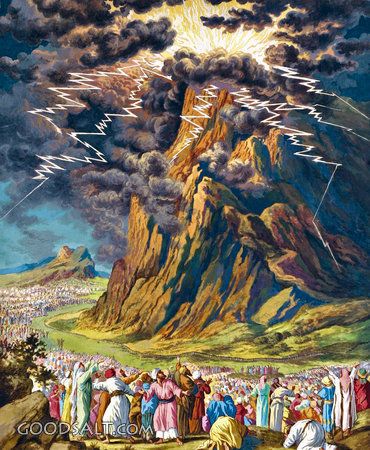
Our church has been reading through the Bible together and I noticed something interesting in the first four verses when we recently read through the book of 1 John. John begins his letter by writing:
“That which was from the beginning, which we have heard, which we have seen with our eyes, which we looked upon and have touched with our hands, concerning the word of life—the life was made manifest, and we have seen it, and testify to it and proclaim to you the eternal life, which was with the Father and was made manifest to us—that which we have seen and heard we proclaim also to you, so that you too may have fellowship with us; and indeed our fellowship is with the Father and with his Son Jesus Christ. And we are writing these things so that our joy may be complete.”
Do you notice how much he talks about his “experience” with Christ? He mentions several times how they saw him, looked upon him, touched him, and how Jesus, who was with the Father, was made manifest to them and now they can have fellowship with the Father through him. And, because of what he experienced, he can now honestly and authoritatively proclaim the truth of eternal life.
I believe the point John was making is that his message of salvation and eternal life is not just theory or religious ideals that may not be different from any other religious teachings. He is stating that his message instead comes from a true life-changing encounter with Jesus Christ. John is making a distinction between religion and a relationship.
John emphasizes this difference several times in his letter when he says, “If we say we have fellowship with Him yet walk in darkness, we lie and do not practice the truth” (1 John 1:6). Also, “If anyone claims to be in the light but hates his brother, he is still in the darkness” (1 John 2:9). Or “If anyone says, ‘I love God,’ but hates his brother, he is a liar. For anyone who does not love his brother, whom he has seen, cannot love God, whom he has not seen” (1 John 4:20).
In short, John is saying that a true follower of Jesus Christ is not merely one who says he is or who performs religious activities or duties. Instead, a true follower of Jesus Christ is one who had a tangible encounter with Jesus that brought about a real transformation in his life. We could even add that, in the verses listed above, John states that if there is no transformation in the person’s life, there is no real relationship with Christ.
Of course, this is God’s desire for each of us. He does not want us just to know ABOUT Him: to obtain information about Him and then try to live out that knowledge in our lives through “good works” in our own strength. This is what all other religions focus on. Instead, God wants us to KNOW Him intimately. He wants us to have such a deep relationship with Him that we can hear His heart, experience His Presence and love, and know His will for our lives. In other words, we can have an encounter with Jesus Christ similar to what John was referring to in this letter. And it is through these encounters that our lives are transformed.
Jesus alludes to this in John 15:15 when He tells His disciples, “No longer do I call you servants, for the servant does not know what his master is doing; but I have called you friends, for all that I have heard from my Father I have made known to you” (ESV). The Greek word for servant used here is doulos which means someone in bondage, a slave who is obedient but does not have any rights or will of their own. They just do what they are told to do. The word for friend, though, is philos which refers to an acquaintance, a beloved associate or trusted confidant, someone who is held in a close bond of personal affection, a companion.
Jesus is saying that the disciples’ relationship with Him is moving from a slave where they just do what they are told to do without knowing or understanding the reason for it, to one of a close friend: a companion with whom He shares His thoughts and desires. Even as a friend, though, we are still required to obey His commands (John 15:14). The difference, however, is that as a servant we obey out of duty or obligation, while as a friend, we know the Master’s heart and we obey out of love for Him. The picture presented here is that the servant represents religion—those who have information about God and obey Him out of duty. The friend, on the other hand, has had an encounter with God and experienced His love and grace. His life is being transformed and he obeys God’s commands because he loves God and because of the transformation that is taking place in his life.
So, the question is, how can we move from being a servant to becoming a friend of God? I would recommend two things: First, follow God’s advice in Ps. 46:10, “Be still and know that I am God.” When you pray, don’t do all the talking. Set some time aside to just be still. Quiet your heart and mind and allow the Spirit of God to speak to you. You’ll be amazed how much God wants to share His heart with you.
Second, allow Him to fill you more with the Holy Spirit. In John 16:13-15, Jesus teaches us that the Holy Spirit will reveal Jesus to us and guide us into a deeper understanding of the truth. This is connected to the first point of being still in our prayer time. When we quiet our hearts before God, we are allowing His Holy Spirit to “saturate” us like a tea bag in water. The more time we spend in His presence, the more His Spirit works in us and transforms us more and more into His image. We become like Him as we build that relationship with Him.
So, which one are you? Are you a servant or a friend? Are you religious or are you in a relationship? Are you merely saying that you are a follower of Jesus, or have you had a real encounter with Him that has transformed your life? If you conclude that you are more a servant than a friend, I encourage you to “Be still” and allow the Holy Spirit to bring you into a true experience with the glory of God.



